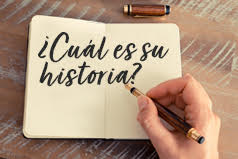Extensión a los Profesionales
In reaching out to professionals, who often identify codependents among their clients, we share information about CoDA’s message of recovery and its potential role as a support to codependents. Information about the CoDA program itself, including local meeting lists and CoDA websites, are resources professionals can pass on to their clients, should they choose.
Who are the professionals you may want to reach? Besides health and mental health professionals, other groups could include victim’s services, women’s shelters, treatment centers, advocate groups such as peer counselors for seniors, youth and parents, those who work at half-way houses. You will know what is active in your area.
The following are some ways in which CoDA groups can carry the message to professionals:
1. Professional Outreach Mailings
A group, Intergroup, or Voting Entity may create a list of local professionals and send a mailing (postal or email) to them. Some CoDA groups have created lists of materials to include in mailings in the spirit of keeping the CoDA Tradition Twelve.
2. Participation in Informational Mental Health Events or Conferences
This may include setting up a booth and staffing it with CoDA volunteers. The booth should display CoDA literature for perusal, including some pamphlets that people can take away with them, as well as updated meeting lists. Posters that illustrate some key CoDA principles and objectives, or questions can be used to attract those who may want to find out more.
CoDA members may also have the opportunity to present a short talk on CoDA at some events. They can always speak to professionals one on one, sharing their own experience of the recovery and support that can be found in CoDA, and invite them to an open CoDA meeting if they seem interested. Members can also visit booths or tables staffed by professionals and provide them a packet of materials including the two pamphlets specifically written for them – Information for Professionals and You First meeting (See materials below).
When choosing an event, please carefully consider the Twelve Traditions. Please look over the ORG Twelve Traditions webpage to review considerations. Specific questions to discuss as a group include:
- Does the event help those who still suffer from codependency?
- Does it put CoDA at risk for affiliation with an outside organization or cause? (Tradition Six)
- Are there local members available to set up and staff the booth during the hours of the event?
- Does the event involve prudent spending or very little to no cost to CoDA? If spending is needed, from what funds will it come? Taking a group conscience prior to spending is always a good idea.
Events and Materials When considering CODA literature to display, consider the following:
- For materials that professionals can take with them, using CoDA approved literature that has been approved for photocopying, can help keep costs down. Examples include: “Recovery from Co-dependency: A Brief Introduction: and other free downloadable materials on the www.coda.org or sites of other countries.
- Suggested pamphlets: “What is CoDA?”, “Am I Codependent?”, “Establishing Boundaries in Recovery”, and Communications and Recovery Please do NOT EVER PHOTOCOPY Conference Approved LITERATURE (See “CoDA Literature” below)
- Display reading copies of only Conference-approved literature such as all approved books. Some groups have selected literature that may be purchased, at their table or booth.
- Offer materials from local, regional or CoDA, Inc.? (i.e. Free copies of local meetings lists and website information)
3. Other CoDA Committees and Regional support
The Hospitals and Institutions Committee can be contacted for guidance on sending materials to organizations such as rehabilitation centers. For inquiries to this committee, please email [email protected]. Also, the H&I newsletter can be signed up for at http://codependents.org/.
Some groups like to contact professionals personally. Some provide newcomers who have been referred by a professional with pamphlets such as “Information for Professionals” and “Your First Meeting” to give to the professionals that referred them
If you are attending an event that includes professionals on behalf of a CoDA group, Intergroup, or Voting Entity, feel free to email [email protected] to find out if additional resources may be available.
Some groups like to contact professionals personally. Some provide newcomers who have been referred by a professional with pamphlets such as “Information for Professionals” and “Your First Meeting” to give to the professionals that referred them.
Others provide their own doctors or other professionals with whom they feel comfortable, with CoDA materials.
Still others research local professionals in their area and provide them with packets that would usually be mailed to them and a contact number in case that professional would like to learn more.
Some medical and other offices provide a brochure rack for their clients. When members contact various offices of professionals, they can ask if CoDA information can be left there as well for both professionals and clients.
4. Further Information and Suggestions for Professionals
Please note that there are guidelines regarding who facilitates a CoDA meeting; CoDA meetings can never be led by a counselor or therapist who is not a CoDA member. If a counselor or student wishes to attend a CoDA meeting but does not identify as a codependent, they should make sure they attend an open meeting only. Furthermore, it is recommended that counselors or students contact the group’s contact person so that members can agree by group conscience to the observer’s presence prior to the meeting. Some professionals do attend an Open CoDA meeting but do not identify themselves as being a student or professional.
FEEDBACK & SUBMISSIONS FOR THIS PAGE: The Outreach Resource Guide (ORG) is a work in progress which depends on contributions from you, our fellowship members. Do you have an experience reaching out to professionals that you would like to share? Please submit suggestions and materials by going to the Submissions page for further instructions.





Recent Comments